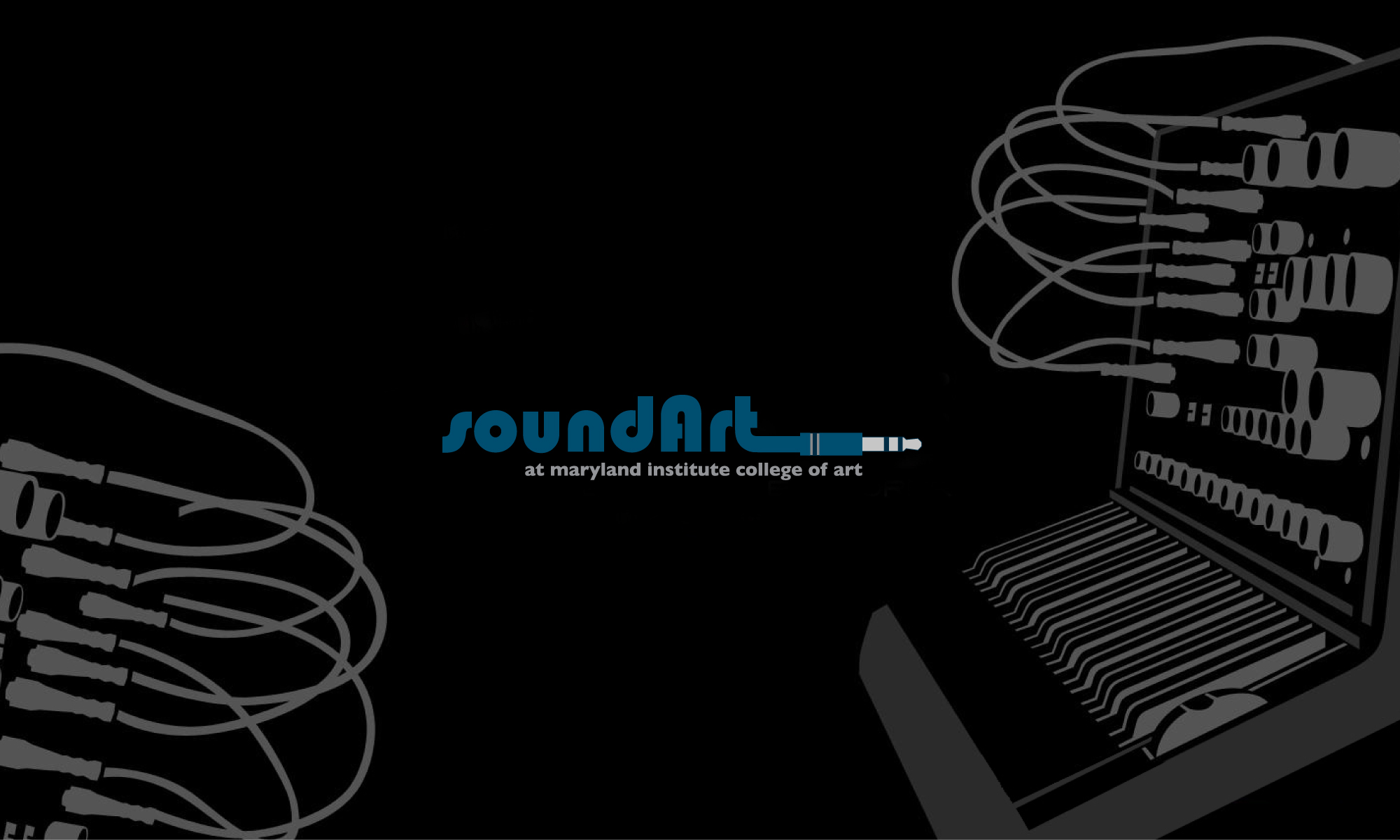SOUND ART COURSES //
Requirements to complete the minor: 15 credits.
Introduction To Sound:
3 credits
This course is designed to provide a basic framework for recording, editing, and composing with sound in a variety of media. No prior production knowledge is assumed. Classes will focus on creative projects, while establishing a common technical and aesthetic vocabulary through in-class demonstrations and discussions. Apple Logic Pro software will be used for most projects, supplemented by some work with programs such as Reason, Ableton Live, and turntables. Topics will include microphones and digital recorders, field and studio recording techniques, sample editing, filters and effects processing, sequencing, sound theory, and compositional strategies in musical and multi-media contexts. Additional detailed topics will be introduced based upon student interest.
Sound Art:
3 credits
Sound Art is a studio introduction to the development of sound as an expressive, sculptural, environmental, net-worked & musical medium. Students will be introduced to a broad range of historical, contemporary and hybrid techniques, ideologies and creative approaches used by artists working in the field. Concepts of interactive sound installation, acoustemology, deep listening, live performance, net-worked music and sound in relation- ship to video & the internet and various will also be covered.
Live Electronic Music & Media:
3 credits [Prerequisite: Intro to Sound, Sound Art or permission of instructor]
This course will provide students with an immersive laboratory in which they can experiment with new modes of sound manipulation in live performance. We will explore sound-manipulation skills in real time, using audio technology ranging from contact microphones to turntables to laptop software such as Ableton Live. DJing and audio improvisation will be practiced in dialogue with live video mixing and a variety of other performance media. Broad topics of study will include looping and evolving sonic space, dissonance and synchronicity, form and time. Creative projects will follow the students’ individual interest, while also contributing to a common performance event, The Vigil, in collaboration with the video and sculpture departments. A second module, following this performance, will focus on interactive sound installations that allow an audience to perform. Students will gain familiarity with DJ mixer techniques, MIDI mapping and con- trollers in combination with audio software, digital and analog effects processing, basic soldering, and a small amount of music theory. Experience with live electronic improvisation and composition will be informed by a familiarity with the work of a range of artists throughout the history of live remix.
*Remix As Performance:
3 credits [Prerequisite: Intro to Sound, Sound Art or permission of instructor]
This course will focus on the use of remixing as an artistic medium. While using audio as the primary medium, the course will also focus on the use of remixing in other media. Creative projects will involve sample slicing, video remixing, collage, constructing a DJ set, live remix with a cappella vocals, and free improvisation in a performance setting. We will explore the history and techniques of scratch DJing with turntables, finger drumming with samplers such as the Akai MPC series, and MIDI mapping controllers with software, including Ableton Live and Traktor Pro.
*Sound Installation Art:
3 credits [Prerequisite: Intro to Sound, Sound Art or permission of instructor]
Sound Installation Art is a studio introduction to the sonic possibilities of a three dimensional space while also considering sound as an independent sculptural medium. The course will address the use of audio with a variety of media including photography, painting, drawing, video, performance and sculptural materials. Concepts of interactivity, site specific sound art, net-worked sound installation and kinetic sound sculpture will also be covered.
The Soundscape:
3 credits [Prerequisite: None]
This course provides an introduction to field recording and field recording composition (phonography), acoustic ecology and concepts of deep listening through the exploration of multiple acoustic environments throughout Baltimore City and its surrounding counties. The class will also take an anthropological approach and consider how different cultures, urban development and humans have influenced our sonic environment throughout history while considering its positive and negative effects.
Topics covered will include soundscape theory and history, microphones and recorders, in field techniques and tools for recording sound, working in a variety of locations, basic sound editing and composition, working with Natural VLF (Very-Low-Frequency) phenomena, microsound, aural architecture, noise, hydrophones for underwater recording, building contact microphones and acousmatic composition.
In addition to multiple creative projects the class will also produce a future edition of Framework, a weekly sixty minute international radio program dedicated to field recording and it’s use in composition.
Studio Technology & Recording:
3 credits [Prerequisite: Intro to Sound, Sound Art or permission of instructor]
This course is an introduction to current computer-based studio and mobile recording using Logic Studio, Ableton LIve & Pro-Tools. Concepts and techniques, covering such topics as session set-up, microphone usage and placement, signal routing, synchronization, MIDI, field recording, editing, mixing and mastering will be covered. The class will also take field trips throughout the semester to local professional recording studios and visit with professionals working in the field.
Synesthesia:
3 credits [Prerequisite: Intro to Sound, Sound Art or permission of instructor]
This studio course takes students on a sonic and visual journey into the exciting world of sound and video synthesis. Beginning in the 1960’s through the present, sound and video synthesis techniques have been used by countless musicians, video artists, television studios and designers to create immersive, psychedelic and engaging multimedia projects in realtime. Topics include sound and video synthesis concepts, hardware and software modular synthesizers for audio and video, projection mapping, generative art, audio reactive visuals, cameraless video and live performance.
